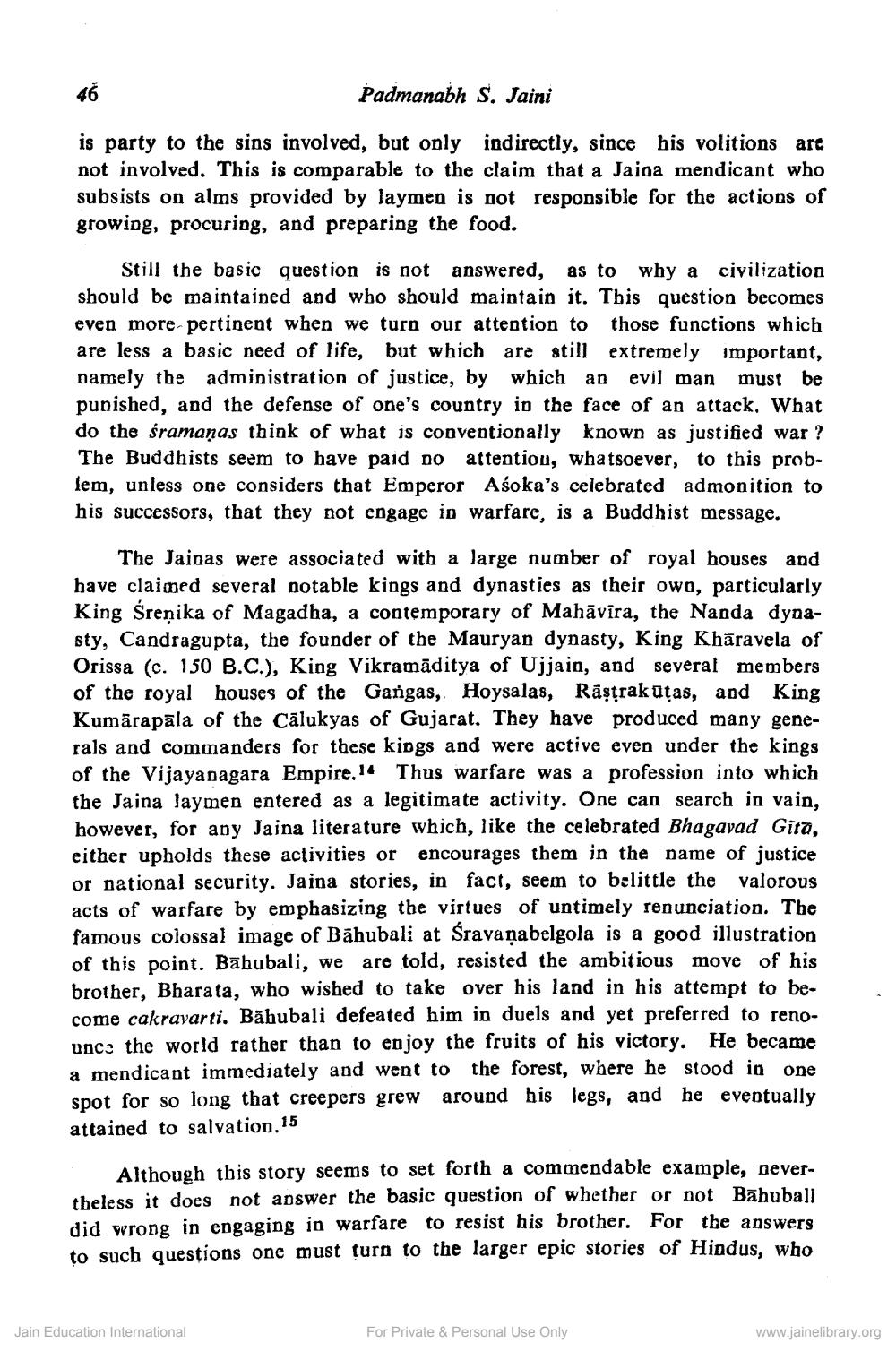________________
46
Padmanabh S. Jaini
is party to the sins involved, but only indirectly, since his volitions are not involved. This is comparable to the claim that a Jaiaa mendicant who subsists on alms provided by laymen is not responsible for the actions of growing, procuring, and preparing the food.
Still the basic question is not answered, as to why a civilization should be maintained and who should maintain it. This question becomes even more pertinent when we turn our attention to those functions which
s a basic need of life, but which are still extremely important, namely the administration of justice, by which an evil man must be punished, and the defense of one's country in the face of an attack, What do the śramaņas think of what is conventionally known as justified war ?
The Buddhists seem to have paid no attention, whatsoever, to this problem, unless one considers that Emperor Asoka's celebrated admonition to his successors, that they not engage in warfare, is a Buddhist message.
The Jainas were associated with a large number of royal houses and have claimed several notable kings and dynasties as their own, particularly King Sreņika of Magadha, a contemporary of Mahāvīra, the Nanda dynasty, Candragupta, the founder of the Mauryan dynasty, King Khāravela of Orissa (c. 150 B.C.), King Vikramāditya of Ujjain, and several members of the royal houses of the Gangas, Hoysalas, Rāştrakūtas, and King Kumārapala of the Cālukyas of Gujarat. They have produced many generals and commanders for these kings and were active even under the kings of the Vijayanagara Empire, 14 Thus warfare was a profession into which the Jaina Jaymen entered as a legitimate activity. One can search in vain, however, for any Jaina literature which, like the celebrated Bhagavad Gita, either upholds these activities or encourages them in the name of justice or national security. Jaina stories, in fact, seem to belittle the valorous acts of warfare by emphasizing the virtues of untimely renunciation. The famous colossal image of Bāhubali at Sravanabelgola is a good illustration of this point. Bāhubali, we are told, resisted the ambitious move of his brother, Bharata, who wished to take over his land in his attempt to become cakravarti. Bābubali defeated him in duels and yet preferred to renounce the world rather than to enjoy the fruits of his victory. He became a mendicant immediately and went to the forest, where he stood in one spot for so long that creepers grew around his legs, and he eventually attained to salvation. 15
Although this story seems to set forth a commendable example, nevertheless it does not answer the basic question of whether or not Bahubali did wrong in engaging in warfare to resist his brother. For the answers to such questions one must turn to the larger epic stories of Hindus, who
Jain Education International
For Private & Personal Use Only
www.jainelibrary.org




